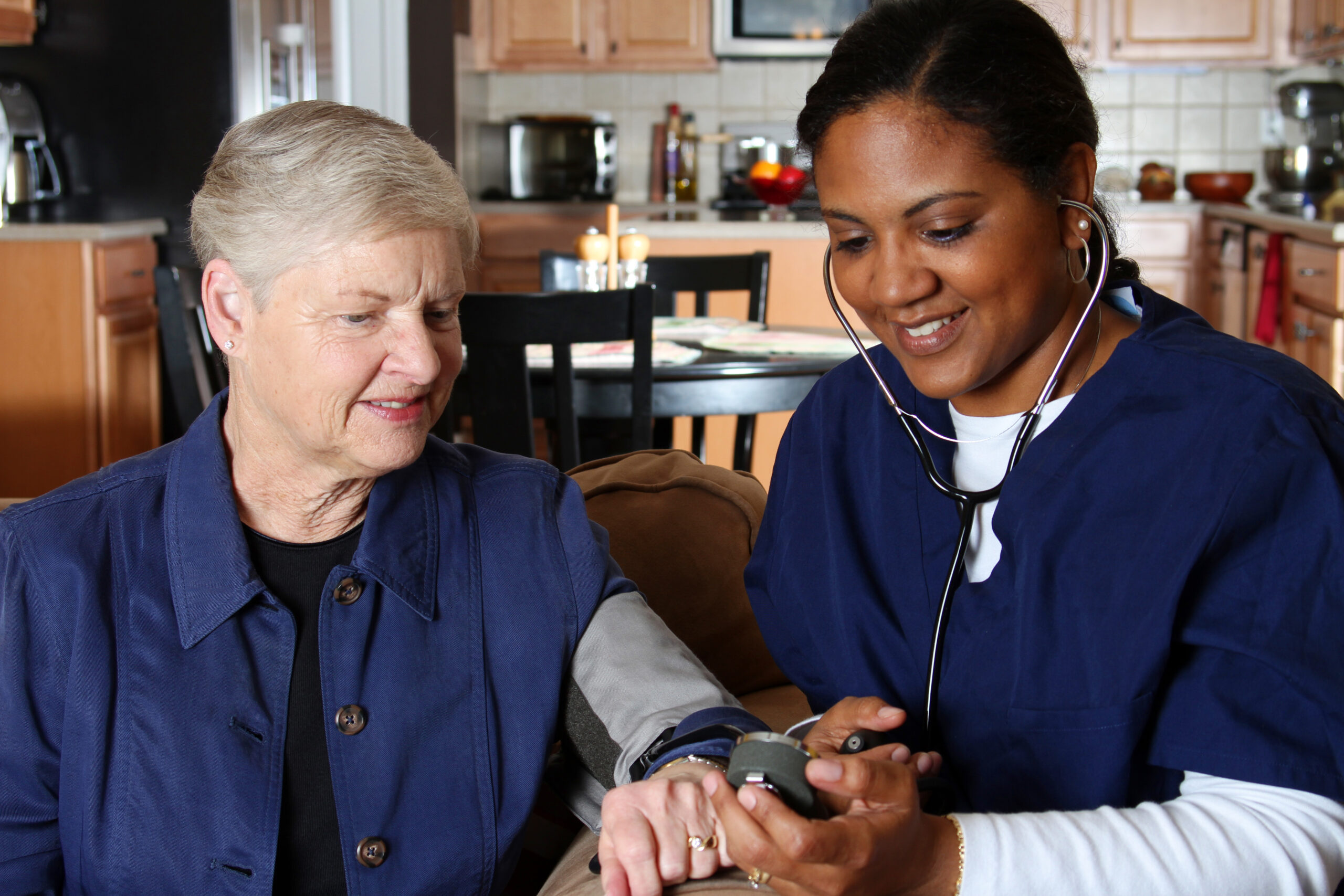“I cannot express enough gratitude for the exceptional healthcare experience I’ve had with MK Hospital@Home. From the moment I engaged with their services, I felt a level of care and professionalism that truly sets them apart. As a resident of the UK, accessing quality healthcare has always been important to me, and [Your Healthcare Service Provider] exceeded my expectations in every aspect. What sets MK Hospital@Home apart is their emphasis on preventive care and holistic well-being. The range of services provided goes beyond traditional healthcare, focusing on proactive measures to promote a healthier lifestyle. This approach has had a positive impact on my overall health, and I feel empowered to take charge of my well-being. The accessibility and efficiency of their services are commendable. Appointments are scheduled promptly, and the seamless integration of technology enhances the overall healthcare experience. The online portal provides easy access to medical records, appointment scheduling, and personalized health information, making it convenient for patients like me.
Live-In Care
Live-in care is a form of home care service where a caregiver resides in the home of the care recipient, providing round-the-clock assistance and support. This type of care is particularly beneficial for individuals who require continuous supervision or assistance with daily activities but wish to remain in the comfort of their own homes. Here are key aspects of live-in care: Continuous Presence: A live-in caregiver resides in the home of the care recipient, ensuring a continuous and dedicated presence to address immediate needs. Personalized Care Plans: Care plans are tailored to the specific needs and preferences of the individual, covering aspects such as personal care, medication management, meal preparation, and companionship. Assistance with Daily Living: Live-in caregivers provide support with activities of daily living (ADLs), including bathing, dressing, grooming, mobility assistance, and toileting. Companionship: Beyond practical assistance, live-in caregivers offer companionship, engaging in conversations, recreational activities, and creating a supportive and social environment. Medication Management: Caregivers ensure that medications are taken as prescribed, following a schedule and monitoring for any side effects or changes in health. Meal Planning and Preparation: Live-in caregivers can assist with meal planning, preparation, and ensuring that dietary preferences and nutritional needs are met. Carers will help with all manner of tasks. Some of the more common include: Getting Up / Going to Bed Medication Cooking Meals & Cleaning Laundry – clothes & bed linen Laundry – clothes & bed linen Household Tasks: Caregivers may take care of light household tasks, such as cleaning, laundry, and grocery shopping, to maintain a safe and comfortable living environment. Flexibility: Live-in care offers a flexible approach, adapting to the changing needs of the individual over time. Individualized Attention: With a one-on-one caregiving arrangement, individuals receive more personalized attention, fostering a deeper connection between the caregiver and care recipient. Respite for Family Caregivers: Live-in care can provide relief for family caregivers, allowing them to take breaks while ensuring their loved ones receive continuous care. Specialized Care: Some live-in caregivers may have training and expertise in specific areas, such as dementia care, allowing for specialized support when needed. Safety and Security: The continuous presence of a caregiver enhances the safety and security of the individual, particularly if there are mobility or health concerns. Monitoring and Communication: Caregivers often monitor the health of the individual and maintain regular communication with healthcare professionals or family members. Live-in care provides an alternative to institutionalized care, allowing individuals to age in place with dignity, comfort, and the familiarity of their own homes. It is a comprehensive and holistic approach to caregiving, emphasizing both physical and emotional well-being.
Elderly Home Care
Elderly home care refers to a range of supportive services provided to older individuals in the comfort of their own homes. The goal is to help seniors maintain their independence, enhance their quality of life, and meet their unique needs. Here are key aspects of elderly home care: Personalized Care Plans: Elderly home care services are tailored to the specific needs and preferences of each individual. Care plans can include assistance with activities of daily living (ADLs), medication management, companionship, and more. Assistance with Daily Activities: Caregivers provide support with daily tasks such as bathing, dressing, grooming, meal preparation, and light housekeeping. Companionship: Recognizing the importance of social interaction, caregivers offer companionship to combat loneliness and promote emotional well-being. Medication Management: Caregivers assist in medication reminders and management, ensuring that seniors take their medications as prescribed. Mobility Support: Assistance with mobility is provided to help seniors move around safely, preventing falls and promoting independence. Health Monitoring: Caregivers may monitor the health of elderly individuals, keeping an eye on vital signs and reporting any concerns to healthcare professionals or family members. Nutritional Support: Caregivers can assist with meal planning and preparation, ensuring that seniors receive proper nutrition to support their health. Carers will help with all manner of tasks. Some of the more common include: Getting Up / Going to Bed Medication Cooking Meals & Cleaning Laundry – clothes & bed linen Laundry – clothes & bed linen Safety Measures: Safety in the home is a priority. Caregivers may implement measures to reduce fall risks and create a secure environment. Transportation: Some elderly home care services offer transportation assistance for medical appointments, grocery shopping, or other errands. Respite for Family Caregivers: Elderly home care can provide relief for family caregivers, allowing them to take breaks while ensuring their loved ones receive proper care. Alzheimer’s and Dementia Care: Specialized caregivers may be trained to provide care for individuals with Alzheimer’s disease or other forms of dementia, tailoring their approach to the unique needs of those with cognitive challenges. Flexible Scheduling: Elderly home care services often offer flexible scheduling, allowing for adjustments based on the changing needs of the individual. Coordination with Healthcare Professionals: There is often collaboration with healthcare professionals to ensure a holistic approach to care, incorporating medical guidance into the overall care plan. Elderly home care is designed to support aging individuals in maintaining their independence, improving their overall well-being, and allowing them to age in place with dignity and comfort.
Respite Care
Respite care services provide temporary relief and support to primary caregivers, offering them a break from their caregiving responsibilities. This service is essential for those caring for individuals with chronic illnesses, disabilities, or aging-related issues. Here’s an overview of respite care: Temporary Relief for Caregivers: Respite care offers short-term relief to primary caregivers, allowing them to take a break, attend to personal needs, or simply recharge. Diverse Care Settings: Respite care can take place in various settings, including in-home care, community-based programs, or residential facilities. It provides flexibility based on the caregiver’s and care recipient’s needs. Professional Care Providers: Trained and qualified caregivers, often including certified nursing assistants (CNAs) or home health aides (HHAs), provide respite care services. Comprehensive Services: Respite care can encompass a wide range of services, such as assistance with activities of daily living (ADLs), medication management, companionship, and supervision. Support for Care Recipients: During respite care, the care recipient continues to receive the necessary support and care, ensuring their well-being in the absence of the primary caregiver. Flexible Scheduling: Respite care can be scheduled on a regular basis or as needed, depending on the caregiver’s requirements and the care recipient’s condition. Carers will help with all manner of tasks. Some of the more common include: Getting Up / Going to Bed Medication Cooking Meals & Cleaning Laundry – clothes & bed linen Laundry – clothes & bed linen Types of Respite Care: In-Home Respite: Care is provided in the individual’s home. Day Programs: Care recipients attend community-based programs during the day. Residential Facilities: Care recipients stay in a facility for a short period. Enhanced Quality of Care: Regular respite care helps prevent caregiver burnout, ensuring that the primary caregiver can provide sustained, high-quality care over the long term. Coordination with Primary Healthcare Providers: Respite care providers often coordinate with primary healthcare professionals to ensure continuity of care and a comprehensive understanding of the care recipient’s needs. Tailored Care Plans: Respite care plans are customized to meet the specific needs, preferences, and health conditions of the care recipient. Emotional Well-being: Respite care not only benefits the primary caregiver but also contributes to the emotional well-being and overall quality of life for both the caregiver and the care recipient. Cost Considerations: The cost of respite care services can vary, and it’s important to consider factors such as the duration, type of care, and specific services included. Respite care plays a crucial role in supporting caregivers, ensuring they can provide sustained care while maintaining their own physical and emotional well-being. It is an integral part of the overall caregiving strategy for individuals with long-term care need
End Of Life Care
End-of-life home care is a specialized form of healthcare and support provided to individuals who are in the final stages of a terminal illness or have a limited life expectancy. The primary goal of end-of-life home care is to enhance the quality of life for individuals facing the end of life, providing comfort, dignity, and support within the familiar surroundings of their own homes. Here are key aspects of end-of-life home care: Comfort and Pain Management: The focus is on providing effective pain management and ensuring the individual’s overall comfort. This may involve medication management, symptom control, and specialized care techniques. Emotional and Spiritual Support: End-of-life home care includes emotional and spiritual support for both the individual and their family. Caregivers offer companionship, counseling, and assistance in addressing emotional and spiritual needs. Respect for Individual Wishes: Care plans are tailored to respect the individual’s wishes and preferences regarding their end-of-life care. This may include decisions about medical interventions, place of care, and personal rituals. Family Involvement: Involving family members in the care process is integral. End-of-life home care providers communicate openly with families, addressing concerns, providing updates, and offering guidance on supporting their loved one. Holistic Approach: The care provided is holistic, addressing not only the physical aspects of the individual’s condition but also emotional, social, and spiritual needs. Coordination with Healthcare Professionals: End-of-life home care often involves close coordination with hospice services, palliative care teams, and other healthcare professionals. This ensures a comprehensive and well-coordinated approach to care. Carers will help with all manner of tasks. Some of the more common include: Getting Up / Going to Bed Medication Cooking Meals & Cleaning Laundry – clothes & bed linen Laundry – clothes & bed linen Dignity and Respect: Maintaining the individual’s dignity is a central focus. Caregivers work to ensure that the individual’s values, preferences, and autonomy are respected throughout the end-of-life care journey. Grief and Bereavement Support: End-of-life home care services extend support beyond the passing of the individual, providing grief and bereavement support to family members and loved ones. Flexible Care Plans: Care plans are flexible and can be adjusted based on the changing needs of the individual as their condition progresses. Community Integration: End-of-life home care may involve facilitating connections with the community, allowing individuals to maintain social ties and engage in meaningful activities when possible. End-of-life home care is a compassionate and personalized approach that aims to honor the individual’s choices, enhance their comfort, and provide a supportive environment for both the individual and their loved ones during a challenging time.
Dementia Care
Dementia home care refers to specialized care services provided to individuals living with dementia within the comfort of their homes. This type of care is designed to support and enhance the quality of life for those affected by dementia while allowing them to remain in familiar surroundings. Here are key points about dementia home care: Tailored Care Plans: Care plans are customized to address the specific needs, challenges, and preferences of individuals with dementia. This includes assistance with daily activities, memory care, and emotional support. Experienced Caregivers: Caregivers in dementia home care services are often trained and experienced in providing care for individuals with cognitive impairments. They understand the unique demands and sensitivities associated with dementia care. Memory Support: Memory care is a central aspect, focusing on activities and strategies to stimulate cognitive functions, preserve memories, and maintain a sense of familiarity for the individual. Safety Measures: Dementia home care providers implement safety measures to create a secure environment, reducing the risk of accidents or wandering common among individuals with dementia. Family Involvement: Involving family members in the care process is crucial. Dementia home care services often communicate with families to provide updates, gather insights, and ensure a collaborative approach to care. Emotional Well-being: Caregivers prioritize the emotional well-being of individuals with dementia, offering companionship, engaging activities, and emotional support to address the psychological aspects of the condition. Flexibility and Adaptability: Care plans are flexible and adaptable to accommodate changes in the individual’s condition. Providers monitor and adjust the care approach as needed. Carers will help with all manner of tasks. Some of the more common include: Getting Up / Going to Bed Medication Cooking Meals & Cleaning Laundry – clothes & bed linen Laundry – clothes & bed linen 24-Hour Live In Care is an excellent, cost-effective alternative to a residential or nursing home, enabling you to retain control and independence. A live-in carer lives with you in your own house and allows you, or your loved one, to stay home in familiar and relaxed surroundings. Community Integration: Dementia home care services may work towards integrating individuals into community activities when appropriate, fostering social connections and reducing isolation. Education and Resources: Caregivers often provide education and resources to family members, helping them better understand dementia, cope with challenges, and enhance their ability to support their loved ones. Quality of Life Focus: The primary goal of dementia home care is to improve the overall quality of life for individuals with dementia, focusing on maintaining dignity, independence, and a sense of purpose. Dementia home care aims to provide compassionate and specialized support, acknowledging the unique needs associated with dementia while promoting the well-being of individuals in their home environment.
Companionship Care
Companionship Home Care Services is a dedicated provider committed to enhancing the well-being and quality of life for individuals within the comfort of their own homes. Here’s an overview: Personalized Companionship: Our services extend beyond traditional caregiving to focus on building meaningful connections. We prioritize companionship to foster a supportive and uplifting environment. Diverse Care Offerings: Companionship Home Care Services provides a range of support, including assistance with daily activities, engaging conversations, and emotional support. We tailor our services to meet the unique needs of each individual. Qualified and Compassionate Caregivers: Our team comprises highly qualified and compassionate caregivers who understand the importance of building trust and rapport. They are dedicated to creating a positive and enriching experience for those under their care. Promoting Independence: We believe in promoting independence while offering the necessary assistance. Our caregivers empower individuals to maintain their daily routines and activities, contributing to a sense of autonomy and fulfillment. Flexible and Customized Plans: Companionship Home Care Services recognizes that every individual has distinct needs. Our care plans are flexible and customizable, ensuring that each person receives the level of support that best suits their lifestyle. Safe and Comfortable Environment: We strive to create a safe, comfortable, and welcoming environment within the home. Our caregivers work to make the living space not just a place of care but also a haven of companionship and security. Transparent Communication: Open and transparent communication is at the heart of our services. We keep clients and their families informed, involved, and reassured throughout the caregiving journey. Emphasis on Emotional Well-being: Recognizing the importance of emotional well-being, Companionship Home Care Services places a strong emphasis on fostering positive emotions, reducing loneliness, and creating a supportive atmosphere that contributes to overall mental health. Carers will help with all manner of tasks. Some of the more common include: Getting Up / Going to Bed Medication Cooking Meals & Cleaning Laundry – clothes & bed linen Laundry – clothes & bed linen At Companionship Home Care Services, we are more than caregivers; we are companions dedicated to enriching lives through meaningful connections and personalized care. Continuous Monitoring and Feedback: We continuously monitor and assess our services, seeking feedback from clients and their families to ensure ongoing improvement and satisfaction. Community Integration: Companionship Home Care Services actively seeks opportunities to integrate clients into the community, encouraging social interactions and engagement beyond the home environment.
Emergency Care
Emergency home care services are designed to provide immediate and urgent assistance to individuals who require immediate care and support within the comfort of their own homes. Here’s an overview: Rapid Response: Emergency home care services offer swift and responsive assistance to individuals facing urgent situations, such as sudden illness, accidents, or unexpected health challenges. Immediate Care Assessment: Upon receiving a request for emergency care, providers conduct a prompt assessment to understand the individual’s needs and develop a quick and effective care plan. 24/7 Availability: These services typically operate around the clock, ensuring that individuals can access urgent care at any time of the day or night. Medical and Non-Medical Support: Emergency home care encompasses both medical and non-medical support. This may include administering medications, wound care, mobility assistance, or helping with daily activities. Coordination with Healthcare Professionals: Providers of emergency home care services often collaborate closely with healthcare professionals and emergency services to ensure a seamless and integrated approach to care. Personalized Care Plans: Care plans are tailored to the specific needs of the individual, addressing the urgency of the situation while considering their overall health and well-being. Transportation and Ambulance Services: Some emergency home care services offer transportation assistance or coordinate with ambulance services if hospitalization or medical appointments are required. Family Communication: Communication with family members is a key aspect of emergency home care. Providers keep family members informed about the situation, the care plan, and any necessary follow-up actions. Post-Emergency Planning: After addressing the immediate emergency, providers work with individuals and their families to develop post-emergency care plans, ensuring a smooth transition to ongoing care if necessary. Regulatory Compliance: Emergency home care services adhere to relevant regulations and standards to ensure the safety and well-being of individuals receiving care. Transparent Communication: Open and transparent communication is maintained throughout the emergency care process, keeping individuals and their families informed and reassured. Community Integration: Emergency home care services may work to integrate individuals back into their communities, offering ongoing support and resources for recovery. It’s important to note that emergency home care services play a critical role in addressing immediate needs, and individuals are encouraged to seek emergency medical services or call local emergency numbers in life-threatening situations. What Is Emergency Care? Carers will help with all manner of tasks. Some of the more common include: Getting Up / Going to Bed Medication Cooking Meals & Cleaning Laundry – clothes & bed linen Laundry – clothes & bed linen Transparent Communication: Open and transparent communication is maintained throughout the emergency care process, keeping individuals and their families informed and reassured. Community Integration: Emergency home care services may work to integrate individuals back into their communities, offering ongoing support and resources for recovery. It’s important to note that emergency home care services play a critical role in addressing immediate needs, and individuals are encouraged to seek emergency medical services or call local emergency numbers in life-threatening situations.
Personal Care
Personal home care services are designed to provide support and assistance to individuals in the comfort of their own homes. These services cater to a variety of needs, enhancing the quality of life for those who may require help due to aging, illness, or disability. Here are some key aspects: Services Offered: Assistance with activities of daily living (ADLs) such as bathing, dressing, grooming, and mobility. Medication management and reminders. Meal preparation and feeding assistance. Light housekeeping and laundry. Companionship and emotional support. Transportation for medical appointments or errands. Professional Caregivers: Personal home care services are typically provided by trained and qualified caregivers. Caregivers may include certified nursing assistants (CNAs), home health aides (HHAs), or other healthcare professionals. Customized Care Plans: Care plans are tailored to the unique needs and preferences of each individual. The level of care can be adjusted based on changing requirements. Benefits of Personal Home Care: Allows individuals to age in place, maintaining independence and familiarity. Provides a personalized and one-on-one approach to care. Enhances the overall well-being and comfort of individuals. Coordination with Healthcare Professionals: Personal home care services often involve collaboration with healthcare professionals, ensuring a holistic approach to care. Regulation and Quality Assurance: Home care services are subject to regulations and may be accredited by relevant health authorities. Quality assurance measures are in place to ensure the safety and well-being of clients. Affordability and Funding: Personal home care services may be covered by insurance, Medicaid, or other funding sources. Different agencies and providers may offer various payment options. Carers will help with all manner of tasks. Some of the more common include: Getting Up / Going to Bed Medication Cooking Meals & Cleaning Laundry – clothes & bed linen Laundry – clothes & bed linen 24-Hour Live In Care is an excellent, cost-effective alternative to a residential or nursing home, enabling you to retain control and independence. A live-in carer lives with you in your own house and allows you, or your loved one, to stay home in familiar and relaxed surroundings. Personal Home Care Services:? It’s essential to research and choose a reputable home care agency that aligns with the specific needs of the individual requiring care. Always consider factors such as the agency’s reputation, staff qualifications, and the comprehensiveness of services offered.









